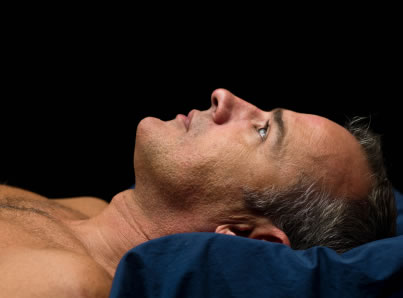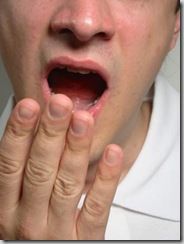Published: August 13, 2010
 The ability to remember is not just to glimpse into the past; a sharp memory can help with creativity, productivity and even the ability to imagine the future, according to several psychologists.
The ability to remember is not just to glimpse into the past; a sharp memory can help with creativity, productivity and even the ability to imagine the future, according to several psychologists.
Sleep, aging and brain chemistry research were all discussed during several presentations on memory at the 118th Annual Convention of the American Psychological Association.
The benefits of sleep are well-documented, but researcher Sara C. Mednick, PhD, and her colleagues are finding that certain stages of sleep actually have distinct roles in people’s memory capacity. [continue reading…]

© iStockphoto
Alzheimer’s disease and its associated dementia can be a scary prospect for individuals and families faced with it. Between 2.4 million and 4.5 million Americans suffer from this debilitating, incurable disease, according to the National Institutes of Health. That figure is expected to rise as the baby boomers age.
Cmmunity memory screening events are becoming increasingly popular as individuals and their families seek to detect dementia in its earliest stages—before it destroys patients’ memories and thinking skills. But many physicians warn against these screenings, which are often ineffective when it comes to detecting dementia, and can leave test-takers feeling scared and powerless. continue reading
Source: Scientific American
 I have a brilliant friend. He is really very clever, but one thing he doesn’t do well is sleep. Well Mark, you may be interested in this new research study. Did you know that the brains of older adults with chronic sleep problems look different from those of adults who have enjoyed enough sleep. Yet the older adults function well despite their lack of sleep. They switch to a continuous form of mild stress, as a result of which they sometimes even perform better than contemporaries who enjoy a good night’s sleep according to Dutch researcher Ellemarije Altena. [continue reading…]
I have a brilliant friend. He is really very clever, but one thing he doesn’t do well is sleep. Well Mark, you may be interested in this new research study. Did you know that the brains of older adults with chronic sleep problems look different from those of adults who have enjoyed enough sleep. Yet the older adults function well despite their lack of sleep. They switch to a continuous form of mild stress, as a result of which they sometimes even perform better than contemporaries who enjoy a good night’s sleep according to Dutch researcher Ellemarije Altena. [continue reading…]
Study also finds that severe sleep deprivation during the school week is common among high-school seniors
 High school seniors with excessive daytime sleepiness have an elevated risk for depression, suggests a research abstract that will be presented Wednesday, June 9, 2010, in San Antonio, Texas, at SLEEP 2010, the 24th annual meeting of the Associated Professional Sleep Societies LLC.
High school seniors with excessive daytime sleepiness have an elevated risk for depression, suggests a research abstract that will be presented Wednesday, June 9, 2010, in San Antonio, Texas, at SLEEP 2010, the 24th annual meeting of the Associated Professional Sleep Societies LLC.
Results indicate that high school seniors were three times more likely to have strong depression symptoms (odds ratio = 3.04) if they had excessive daytime sleepiness. Fifty-two percent of participants (136 students) had excessive daytime sleepiness, 30 percent (80 students) had strong depression symptoms and 32 percent (82 students) had some symptoms of depression.
[continue reading…]
 The ability to remember is not just to glimpse into the past; a sharp memory can help with creativity, productivity and even the ability to imagine the future, according to several psychologists.
The ability to remember is not just to glimpse into the past; a sharp memory can help with creativity, productivity and even the ability to imagine the future, according to several psychologists.
 High school seniors with excessive daytime sleepiness have an elevated risk for depression, suggests a research abstract that will be presented Wednesday, June 9, 2010, in San Antonio, Texas, at SLEEP 2010, the 24th annual meeting of the Associated Professional Sleep Societies LLC.
High school seniors with excessive daytime sleepiness have an elevated risk for depression, suggests a research abstract that will be presented Wednesday, June 9, 2010, in San Antonio, Texas, at SLEEP 2010, the 24th annual meeting of the Associated Professional Sleep Societies LLC.